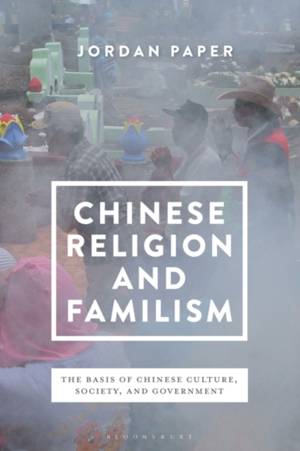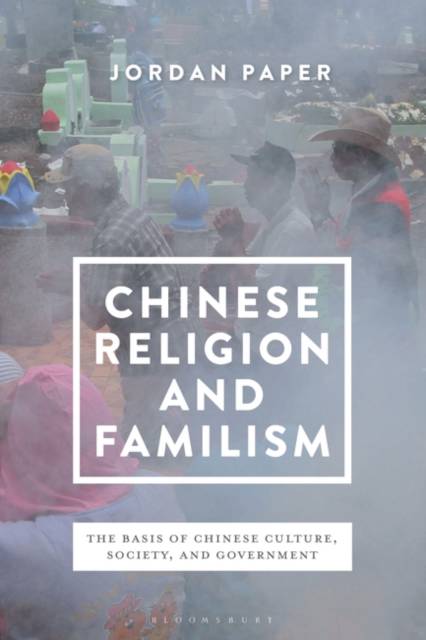
- Afhalen na 1 uur in een winkel met voorraad
- Gratis thuislevering in België vanaf € 30
- Ruim aanbod met 7 miljoen producten
- Afhalen na 1 uur in een winkel met voorraad
- Gratis thuislevering in België vanaf € 30
- Ruim aanbod met 7 miljoen producten
Zoeken
Chinese Religion and Familism
The Basis of Chinese Culture, Society, and Government
Jordan Paper
Hardcover | Engels
€ 186,95
+ 373 punten
Uitvoering
Omschrijving
Reflecting on over half a century of study on Chinese culture, Jordan Paper explores new ways of approaching religion in China. Moving away from using Christianity as a model for examination, which has led to considerable misunderstandings between China and the West, Paper instead applies the paradigm of Familism to Chinese religion. By looking through the lens of Familism, which emphasises the importance of the family unit, Paper argues that we can understand the basis of Chinese culture, society, government, and religion.
In the book, Paper explains how, when and why Familism appears in the development of human culture in the Neolithic period, as well as its ramifications in more complex societies, using the imperial Chinese state as an example. The discussion in the book includes how the Chinese state can be understood as a religious institution; the role of spirit possession; the relationship of other religions in China to Chinese Religion, including Buddhism, Daoism and Judaism; and the issue of freedom of religion in contemporary China. Chinese Religion and Familism not only challenges the discipline's perception of Chinese religion, but all of the religions of East Asia, indigenous sub-Saharan African religions, Polynesian Religion, and elsewhere.Specificaties
Betrokkenen
- Auteur(s):
- Uitgeverij:
Inhoud
- Aantal bladzijden:
- 200
- Taal:
- Engels
Eigenschappen
- Productcode (EAN):
- 9781350103610
- Verschijningsdatum:
- 3/10/2019
- Uitvoering:
- Hardcover
- Formaat:
- Genaaid
- Afmetingen:
- 156 mm x 234 mm
- Gewicht:
- 453 g

Alleen bij Standaard Boekhandel
+ 373 punten op je klantenkaart van Standaard Boekhandel
Beoordelingen
We publiceren alleen reviews die voldoen aan de voorwaarden voor reviews. Bekijk onze voorwaarden voor reviews.











